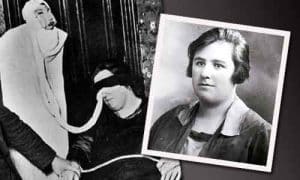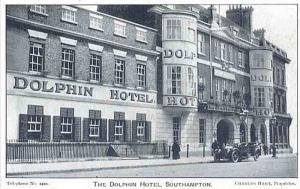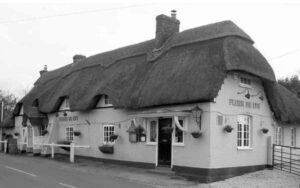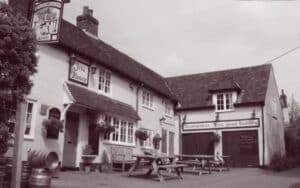JON KANEKO-JAMES tells us the Cockatrice was a monstrous beast far more dangerous than religious zealots in 1533
1533 and Britain was entering the first stages of the Reformation. The Priory at Wherwell, Hampshire, had escaped relatively untouched by the reformers. Unfortunately for them, something far darker was hatching.
Down in the vaults of the Priory’s Minster, the Prior’s aged cockerel, nearing the end of its life, had found a cool, dark place to lay an egg. There in the darkness it laid a single yolkess sphere, with a tough skin like a serpent’s egg, and quietly expired. Serpents and toads made their homes in the cool damp of the chapel’s crypt, strangely drawn to sit on and incubate the egg… and all too soon, it hatched.
Instantly a terrible poisonous vapour started to seep out of it’s mouth and nostrils, killing the crypt rats and driving everything else out of the chamber. The Cockatrice, barely six inches long, feasted on the days old body of the Cockerel, hissing at the footsteps of the unsuspecting monks above it.
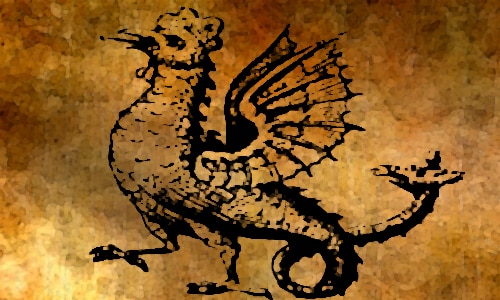
It was a nightmare thing: standing on two upright legs, like a chicken, with the feathered upper body and beak of a bird, a crown of wattles on its head. It’s lower body was a long, writhing serpent-like tail. It ate anything it could: carrion, scraps, corpses and other serpents. And it grew.
Soon the beast was four feet long, and its powers were terrifying. It could kill with a look, or a bite, and even a weapon that contacted it would become poisoned, killing its wielder… if he even survived to attack, seeing as it had an aura of poisonous vapour that killed anything near it. The vapour even spread as far as the Priory’s crops, killing plants and weeds alike. Blackened, rotting stems and barren soil formed a desolate ring around the priory. At first the Prior and his monks tried to pray for the creature’s death. The same tactic had worked when God had incubated a Cockatrice in the vaults of 9th Century Rome, a punishment for the City’s Godlessness. Pope Leo IV had led a campaign of prayer and fasting that had done the thing to death. Unfortunately, the same tactic did not work for the monks of Wherwell.
The Prior contacted the Abbot and received permission to offer a reward of money, and four acres of land to anyone who could slay the beast. Countless locals tried, coming from as far as Bristol, Southampton and London. All of them died. Eventually a local man, named Green, took up the challenge, and lowered a mirror into the vault. Bestiaries said that the Cockatrice’s reflection would kill it, but they proved to be false. The mirror did, however, prove to be the Cockatrice’s undoing.
Green let in just enough light to the crypt that the Cockatrice would be able to see itself in the mirror, and although it didn’t die it did give a terrible hiss and immediately begin attacking its reflection, taking it for another animal. The two fought, Cockatrice and reflection, for hours, almost a day, before the beast (which was now four feet long) finally collapsed of exhaustion.
Green was mindful of a passage from the poet Lucan where a Moor had killed a Cockatrice with a spear, only to be killed by its poison when he retrieved his weapon, so he positioned himself above the animal and dropped the spear on it, piercing its heart and leaving the spear where it stood.
The Cockatrice let out one more terrible hiss of pain and rage, and rattled its final breath. The Prior was elated, and stayed true to his word, granting a parcel of land that is called “Green’s Acre” in Wherwell to this day.

